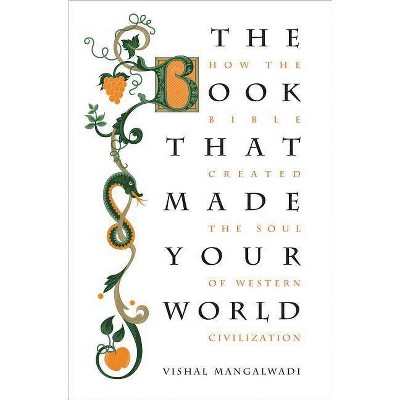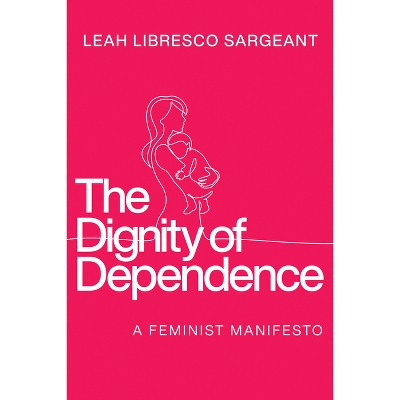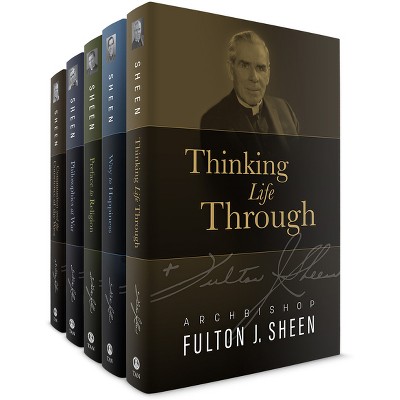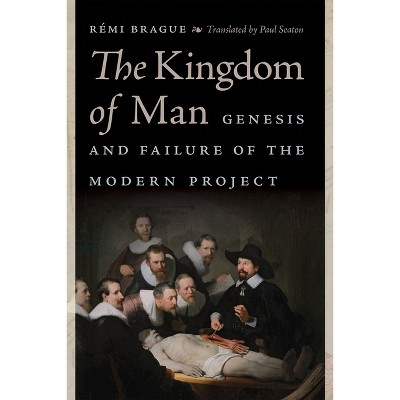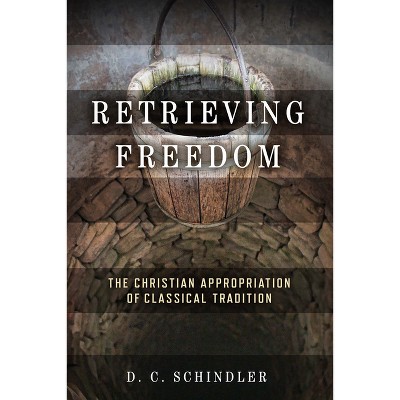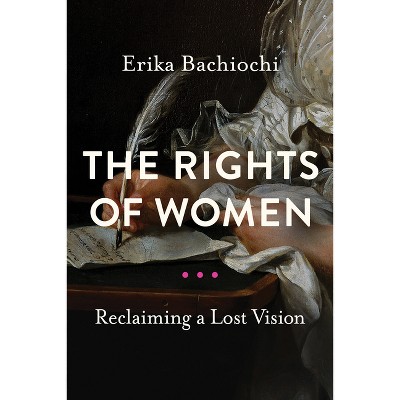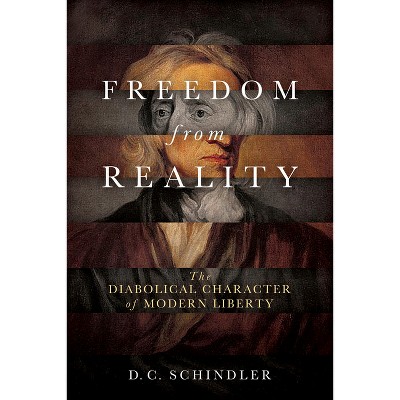Sponsored

The Disintegrating Conscience and the Decline of Modernity - (Catholic Ideas for a Secular World) by Steven D Smith (Hardcover)
In Stock
Sponsored
About this item
Highlights
- This book considers how the modern concept of "conscience" turns the historic commitment on its head, in a way that underlies the decadence of modern society.Steven D. Smith's books are always anticipated with great interest by scholars, jurists, and citizens who see his work on foundational questions surrounding law and religion as shaping the debate in profound ways.
- About the Author: Steven D. Smith, winner of the 2022 Religious Liberty Initiative Scholarship Award, is formerly the Warren Distinguished Professor of Law, co-executive director of the Institute for Law and Religion, and the co-executive director of the Institute for Law and Philosophy at the University of San Diego.
- 286 Pages
- Political Science, History & Theory
- Series Name: Catholic Ideas for a Secular World
Description
About the Book
In The disintegrating conscience and the decline of modernity, Smith takes as his starting point Jacques Barzun's provocative assertion that "the modern era" is coming to an end. Smith considers the question of decline by focusing on a single theme--conscience--that has been central to much of what has happened in Western politics, law, and religion of the past half-millennium.Book Synopsis
This book considers how the modern concept of "conscience" turns the historic commitment on its head, in a way that underlies the decadence of modern society.
Steven D. Smith's books are always anticipated with great interest by scholars, jurists, and citizens who see his work on foundational questions surrounding law and religion as shaping the debate in profound ways. Now, in The Disintegrating Conscience and the Decline of Modernity, Smith takes as his starting point Jacques Barzun's provocative assertion that "the modern era" is coming to an end. Smith considers the question of decline by focusing on a single theme--conscience--that has been central to much of what has happened in Western politics, law, and religion over the past half-millennium. Rather than attempting to follow that theme step-by-step through five hundred years, the book adopts an episodic and dramatic approach by focusing on three main figures and particularly portentous episodes: first, Thomas More's execution for his conscientious refusal to take an oath mandated by Henry VIII; second, James Madison's contribution to Virginia law in removing the proposed requirement of religious toleration in favor of freedom of conscience; and, third, William Brennan's pledge to separate his religious faith from his performance as a Supreme Court justice. These three episodes, Smith suggests, reflect in microcosm decisive turning points at which Western civilization changed from what it had been in premodern times to what it is today.
A commitment to conscience, Smith argues, has been a central and in some ways defining feature of modern Western civilization, and yet in a crucial sense conscience in the time of Brennan and today has come to mean almost the opposite of what it meant to Thomas More. By scrutinizing these men and episodes, the book seeks to illuminate subtle but transformative changes in the commitment to conscience--changes that helped to bring Thomas More's world to an end and that may also be contributing to the disintegration of (per Barzun) "the modern era."
Review Quotes
"This book highlights the enormity, complexity, resilience, danger, disenchantment and importance that accompany matters of conscience, which in turn are inextricably connected to the relationship between law, religion and the state. It offers a novel and convincing defence of conscience as understood both in the context of the pre-modern West and by religious communities and traditions in the modern era." --International Journal for Religious Freedom
"Appearing in the Notre Dame series "Catholic Ideas for a Secular World," the basic disposition of Smith's book will not surprise readers. He has long grappled with the challenge of faithfully adjusting Christian conviction to a political and legal regime once friendly but increasingly hostile. To those, like the present reviewer, sympathetic to this project, his books are trenchant and compelling. Those less sympathetic would also do well to read them as judicious but uncompromising challenges to the regnant academic pieties of the moment." --Review of Politics
"Steven Smith is the greatest law and religion scholar of his generation. Every book he writes is illuminating, and this one is no exception. The Disintegrating Conscience and the Decline of Modernity is far and away the most insightful, balanced, and convincing account of the religion clauses to appear in the last five years at least." --Marc O. DeGirolami, author of The Tragedy of Religious Freedom
About the Author
Steven D. Smith, winner of the 2022 Religious Liberty Initiative Scholarship Award, is formerly the Warren Distinguished Professor of Law, co-executive director of the Institute for Law and Religion, and the co-executive director of the Institute for Law and Philosophy at the University of San Diego. He is the author of numerous books including The Godless Constitution and the Providential Republic and Fictions, Lies, and the Authority of Law.
Shipping details
Return details
Guests also viewed

